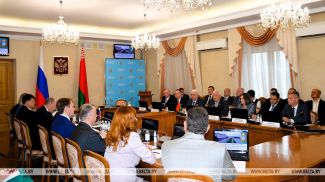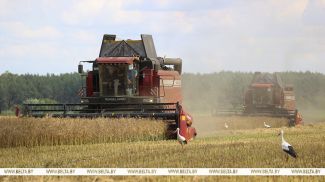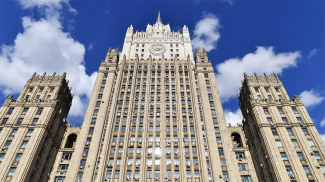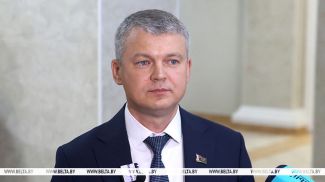
KOPYL DISTRICT, 29 November (BelTA) – There are plans to expand turkey meat production in Belarus, Prime Minister Roman Golovchenko told journalists as he visited Agrokombinat Dzerzhinsky on 29 November, BelTA has learned.
The Belarusian head of government was told about the investment project for turkey production run by Agrokombinat Dzerzhinsky. Roman Golovchenko was shown the technology and the entire production cycle.

“Turkey production is an important area of poultry farming in the country, this industry is making very good progress. Compared to 2021, the output of this healthy meat has more than tripled. We currently have three turkey production facilities in the country - in Ostrovets, Lida and in Kopyl District,” said Roman Golovchenko.

The production facility run by Agrokombinat Dzerzhinsky in Kopyl District is designed to produce 6,000 tonnes of turkey meat per year. “This year, the aggregate turkey output in the country will be about 10,000 tons. As I have already said, this is three times more than it was three years ago. And our producers are not going to stop at this. The agrokombinat plans to build a production facility with the capacity of 4,000 tonnes in another district,” the prime minister noted.

According to him, there is solid demand for turkey; its popularity is growing. “First of all, we need to meet the demand on the domestic market. We also export this product. More than 1,200 tonnes were shipped to Russia. Despite the fact that Russia produces over 400,000 tonnes, Belarusian turkey sells well there. Moreover, contracts are concluded directly with stores, hypermarkets and retail chains,” the Belarusian head of government noted.

This industry is planned to be actively promoted in Belarus. “The government supports it through special preferential loans. One of the following facilities will be included in the “One District One Project” program, Roman Golovchenko added.
The prime minister admitted that he himself loves turkey meat. “Very tasty meat. I often take boiled fillet for lunch. Highly recommended,” he said.

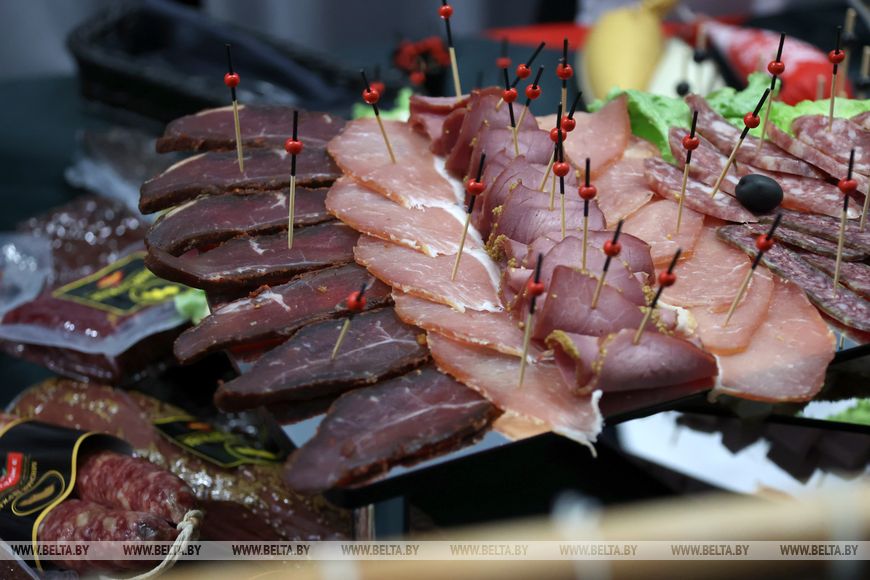
The Belarusian head of government was told about the investment project for turkey production run by Agrokombinat Dzerzhinsky. Roman Golovchenko was shown the technology and the entire production cycle.

“Turkey production is an important area of poultry farming in the country, this industry is making very good progress. Compared to 2021, the output of this healthy meat has more than tripled. We currently have three turkey production facilities in the country - in Ostrovets, Lida and in Kopyl District,” said Roman Golovchenko.

The production facility run by Agrokombinat Dzerzhinsky in Kopyl District is designed to produce 6,000 tonnes of turkey meat per year. “This year, the aggregate turkey output in the country will be about 10,000 tons. As I have already said, this is three times more than it was three years ago. And our producers are not going to stop at this. The agrokombinat plans to build a production facility with the capacity of 4,000 tonnes in another district,” the prime minister noted.

According to him, there is solid demand for turkey; its popularity is growing. “First of all, we need to meet the demand on the domestic market. We also export this product. More than 1,200 tonnes were shipped to Russia. Despite the fact that Russia produces over 400,000 tonnes, Belarusian turkey sells well there. Moreover, contracts are concluded directly with stores, hypermarkets and retail chains,” the Belarusian head of government noted.

This industry is planned to be actively promoted in Belarus. “The government supports it through special preferential loans. One of the following facilities will be included in the “One District One Project” program, Roman Golovchenko added.
The prime minister admitted that he himself loves turkey meat. “Very tasty meat. I often take boiled fillet for lunch. Highly recommended,” he said.

According to Agrokombinat Dzerzhinsky, turkey meat products are in great demand, this business really took off. Turkey does not stay long in warehouses and on store shelves. The production in Kopyl District is mainly automated, about 200 people work there. The number of employees is expected to grow. Now the enterprise works in one shift, but due to high demand, it is planned to introduce a two-shift system.






